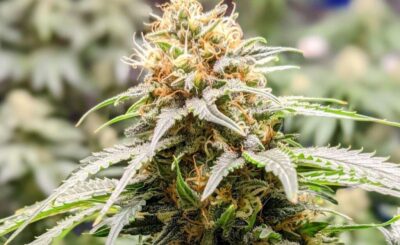Let’s face it – the pain from an aching tooth is impossible to ignore. Whether it is a dull, throbbing ache or an intense, head-pounding, nerve-wracking monster of a toothache that makes you beg the heavens for deliverance, you cannot simply set it aside and go on with your life! Even if you try to, it will haunt you like a ghost and you will feel its gnawing presence day and night – until you decide to do the right thing and see a dental clinic in Clementi. The dentist will peek inside your mouth, examine the offending tooth (or teeth), and make a judgment call based on empirical facts. If you are lucky, the dentist will still be able to save the tooth/teeth; otherwise, you will need to undergo a tooth extraction procedure.
Getting a tooth extraction in Singapore is typically painless and quick, so you have nothing to worry about. There are a lot of facilities like Smilepoint Dental Centre that offer this service, and with the additional convenience of being able to book an appointment online, too. No more waiting in line to see a dentist these days, everything has been made easier. For a lot of people, the actual challenge lies in mustering the courage to go the dentist!
To understand the importance of seeing a dentist if you are experiencing toothaches, this article will answer the following questions:
- Why are teeth removed?
- What is the difference of simple extractions and surgical extractions?
- How do I prepare for a tooth extraction
- What to do after having a tooth extraction?
Reasons why teeth are removed
Our permanent teeth were given the namesake “permanent” because they are supposed to last for a lifetime. However, when there is damage that goes beyond repair, the dentist will recommend extraction as the final resort. This typically happens in cases where there is injury or trauma, a severe infection or decay has penetrated the depths of the tooth, or there is crowding in the mouth. People with braces may sometimes be required to have one or two teeth removed in order to create space from other teeth as they move into place. Kids whose baby teeth are still intact during the time when the permanent teeth are about to emerge may need an extraction. And adults with wisdom teeth (or third molars) often get an extraction before or after their wisdom teeth come in.
Bear in mind that tooth extraction is only done when there is an absolute need; it is not something that can or should be done on a whim! A dentist’s first instinct is always to save the tooth, whether it is with a crown, filling, or other treatments.
Simple extractions versus surgical extraction
Tooth extraction in Singapore is considered an outpatient procedure and it is performed with local, general, or intravenous anesthesia. The procedure is classified into two: simple extraction or surgical extraction. A simple extraction is for cases when the tooth is visible from the gumline and it is usually done with the aid of a local anesthesia. When the tooth is broken (or breaks during the procedure), below the surface or not fully visible, or impacted, then a surgical extraction is recommended. This type of extraction is performed under general anesthesia. The dentist may need to remove parts of the tooth or gum tissue during a surgical extraction, and stitches will be applied, but you should not be afraid because your safety and comfort is always the dentist’s priority.
Preparing for a tooth extraction
Reputable dental care facilities like Smilepoint Dental Centre employ highly experienced dentists and oral surgeons to perform tooth extractions. Prior to scheduling the procedure, your dentist willtake an x-ray of your oral cavity. They will also ask some questions about your dental and medical health, so make sure that you provide detailed information on your recent dental visits, diet, and any medications that you are currently taking. It is also important that you tell your dentist if you have any medical condition such as diabetes, congenital heart disease, hypertension, compromised immune system, artificial joint or impaired heart valves, or liver disease. Your dentist will want to make sure that all conditions are treated or, at the very least, stable before the tooth extraction. For medically compromised patients, some dentists may also require a signed clearance from the patient’s primary health care provider or specialist before performing the extraction.
On the day of the procedure, make sure that you refrain from smoking (if you are a smoker). Be sure that you have eaten and then cleaned your teeth properly afterwards. If you are not feeling well (for example, you have a cold or running a fever) or have experienced vomiting or nausea the night before, you should tell your dentist so the extraction could be rescheduled. And if you are going to be put under general anesthesia, you should bring another person who can pick you up after the procedure and bring you home safely.
Post-tooth extraction care
After the tooth has been extracted, your dentist will put a piece of sterile gauze or cotton on the extraction site to minimize bleeding. Detailed aftercare instructions will also be provided and unless you have the super power to heal very quickly, you will need a few days to recover from a tooth extraction.
For 24 to 48 hours after your extraction, you should refrain from smoking, chewing hard food, using a straw, and rinsing your mouth (spit only and does it gently). You should relax and as much as possible, avoid strenuous activities that may trigger bleeding. You can use an ice pack to reduce swelling but remember to use it only for about 10 minutes at a time. Your doctor will also prescribe antibiotics and painkillers; make sure to take them on time (and on a full stomach, not an empty one).
Soft foods will be your lifesaver for a couple of days so stock up on soups, pudding, yoghurt, and oatmeal, mashed potatoes, mushed-up fruits like avocado or banana, and Jell-O. If you experience severe or prolonged pain, bleeding, swelling, or fever, you should contact your dentist right away.
A final word
Feel free to ask your dentist any question about the procedure before, during, or after a tooth extraction. They will be surely be happy to dispel your doubts and worries. A tooth extraction can be fearsome and daunting, that’s a fact, but it is something essential and should not be delayed. Go get it, before it’s too late! Once it is done and over with, you will thank yourself for going through it bravely!
Smilepoint Dental Holland Village
43 Jln Merah Saga, #01-64 Chip Bee Gardens, Singapore 278115
+65 6475 1028








